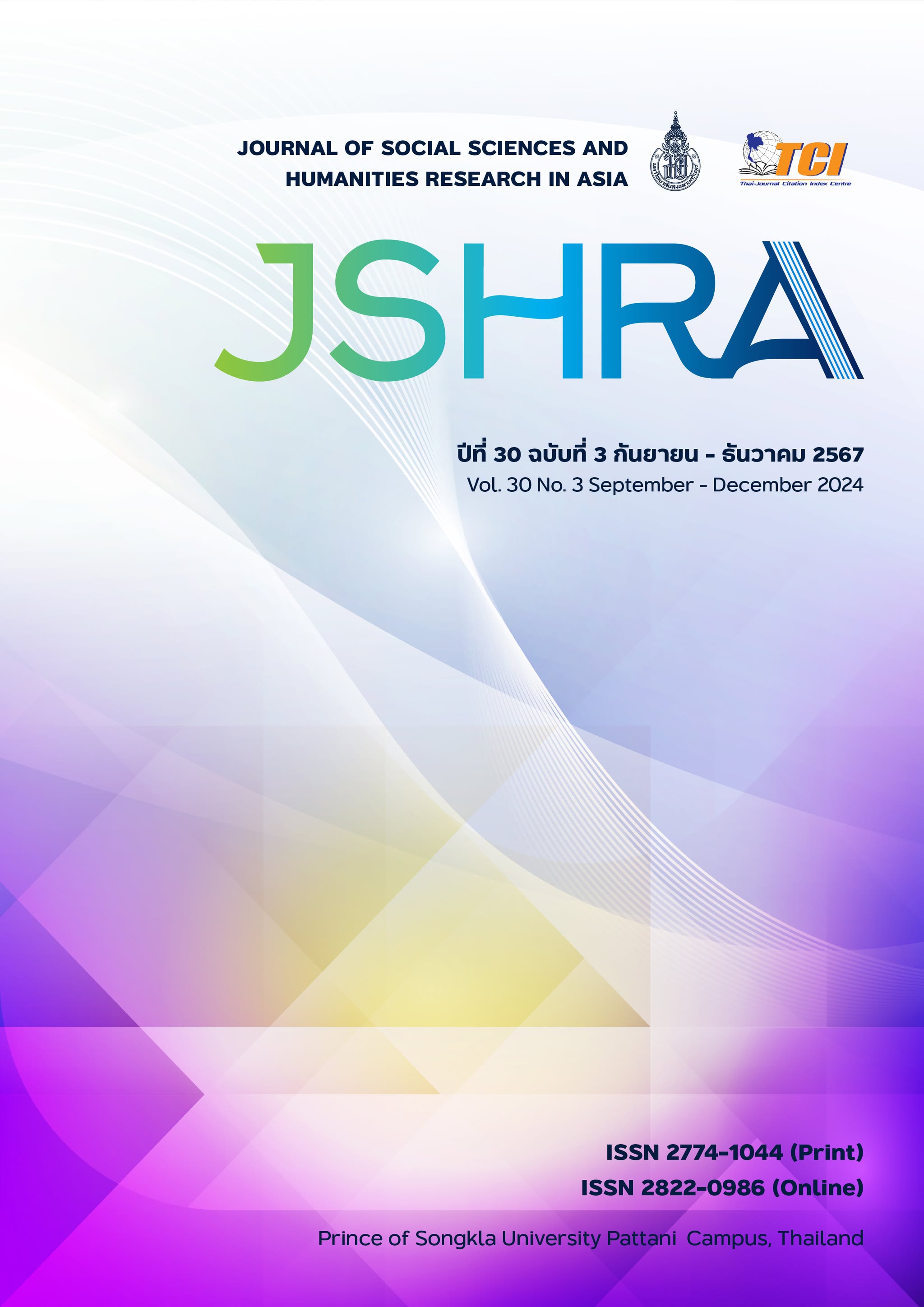“Pu Khai Kai Long” Song: An Analysis of Psychological and Aesthetic Dimensions
Keywords:
Aesthetics, Country Song, Emotional Perception, PsychologyAbstract
The song, Pu Kai Kai Long, is an immortal Thai country song, which will be 52 years old in 2024. The lyrics were composed by Chalong Phusawang and first performed by Chaitong Songphon in 1972. The song narrates the story of a woman who leaves her former lover for someone of higher social status. However, after becoming pregnant and abandoned by her new lover, she returns to her former lover, only to face rejection and ridicule. This significant element of mockery and irony is a core theme of the song. The song gained early popularity and remains beloved as one of Thailand’s most enduring country songs. It was celebrated as an outstanding country song during the half-century anniversary of Thai country music in 1991 and has sincebeen covered by nine other singers. Beyond its musical appeal, the song has also been embraced in other entertainment forms, including village dances, student cheerleading routines, freshman welcome events, and as a travel entertainment song. The author of this article observes: The enduring fame and popularity of the song for over half a century stem from its melody and musical composition, which evoke a sense of entertainment and social participation. Most listeners and participants do not focus on the song's lyrics of ridicule or irony, nor use the song to mock or criticize women who have faced romantic missteps. The song’s content highlights both personal ridicule and the irony of fate, as the woman’s return occurs when she is no longer in a condition to rekindle love with her former partner.
References
Benjakul. (2024, January 2). The sweetness and fun of the song “Pu Khai Kai Long” Interview.
Bunmas. (2024, January 2). The sweetness and fun of the song “Pu Khai Kai Long”. Interview.
Jame, W. (1950). The principles of psychology. New York: Dover.
Jobkrabounwan, J. (2016). 2nd half-century of Thai country music. Retrieved from https://www.facebook.com/131078776961675/photos/a.172341949502024/1144853775584165/?type=3&locale=th_TH
Jitjumnong, D. (1998). Aesthetics in Thai language (3rd ed.). Bangkok: Sayam.
Kaewtaen, S. (2024, January 2). The sweetness and fun of the song “Pu Khai Kai Long”. Interview.
Kaewsataya. (2024, January 3). The sweetness and fun of the song “Pu Khai Kai Long”. Interview.
Nakavajara, C. (1972). Critical literature and literature studies. In Wanvaidayakon (Literature) (pp. 1–53). Bangkok: Textbook Project on Social Sciences and Humanities Society of Social Sciences of Thailand.
Phusawang, C. (2009). In Wikipedia, the free encyclopedia. Retrieved July 13, 2021, from https://en.wikipedia.org/wiki/Chalong,_Phuket
Royal Academy. (1996). Dictionary of literary terms: Figurative, rhetorical, and composing techniques. Bangkok: Royal Institute.
Schachter, S., & Singer, J. E. (1962). Cognitive, social, and psychological determinants of emotional state. Psychological Review, 69(5), 379–399.
Sompong. (2024, January 4). The sweetness and fun of the song “Pu Khai Kai Long”. Interview.
Wichawut, C. (1982). Fundamentals of psychology (1st ed.). Bangkok: Chulalongkorn University Press.
Youth Encyclopedia Project Foundation. (2018). “Origin of country music” in Thai encyclopedia for youth, Volume 33. Retrieved from https://www.saranukromthai.or.th/sub/book/book.php?book=33&chap=2&page=t33-2-infodetail01.html










